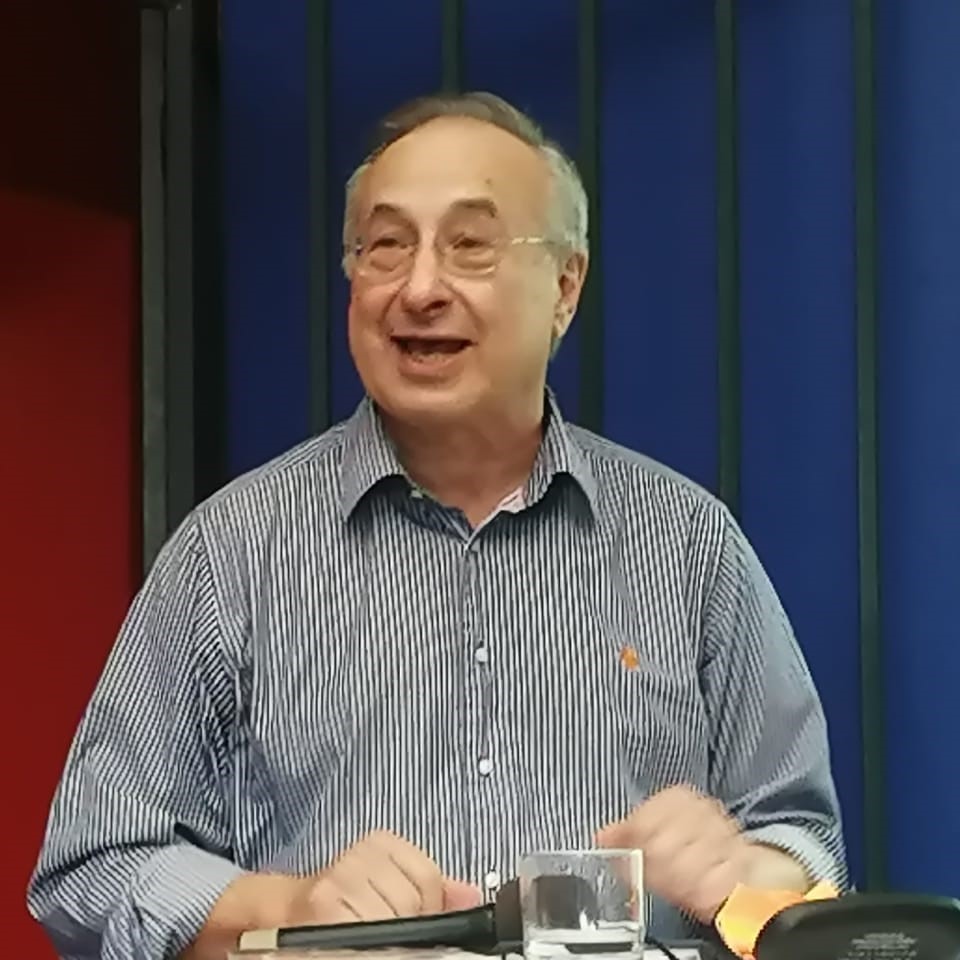click to dowload our latest edition
CLICK HERE TO SUBSCRIBE TO OUR NEWSLETTER


Published
4 years agoon
By
adminMIRAH LANGER
The book’s title, Matisonn says, emerged in the process of writing the book as somewhat ironic.
“I started writing the book when Jacob Zuma was still president, thinking that when Cyril comes it will be better,” said the author at the book launch.
“And, of course, now we [as South Africans] realise that the choices are really choices for us to make. They aren’t going to be made by government and the political parties in an efficient way. We are going to have to be involved in it ourselves.”
Matisonn’s latest book, which is subtitled Lessons from 25 Years of Freedom in South Africa follows on from his 2015 book, G-d, Spies and Lies: Finding South Africa’s Future Through Its Past.
He said that while it’s too soon to be able to suggest what Ramaphosa’s ultimate legacy might be, “Right now, all one can say is it’s stasis. Things are slowly being improved.” Yet, he suggested, South Africans are still waiting for concrete action such as the arrest, prosecution, and conviction by the National Prosecuting Authority of those involved in corruption.
Matisonn conceded that while “obviously, state capture was far deeper and wider than we thought”, nevertheless, “I made the same mistake that I think most people made in thinking that he could turn things around faster.”
He suggested that, indeed, for Ramaphosa, the 2020 political calendar would be dominated by the African National Congress (ANC) national general council meeting. This was the halfway point between the previous national conference, held in December 2017 in Nasrec, Johannesburg, and the one which will follow in 2022.
It is here that Ramaphosa will have to face many of the “poison pills” inherited by Zuma such as the proposal for land expropriation without compensation and the nationalisation of the Reserve Bank. His hypothesis is that Ramaphosa might wait for the Constitutional Court to resolve some of these issues rather than taking a stand. After all, as an architect of the Constitution, Ramaphosa has knowledge of what the court’s rulings are likely to be in this matter.
When it comes to factions within the ANC, Matisonn proposed that Ramaphosa was not in as much danger as sometimes posited. “They want to weaken him, but I don’t think they want to defeat him. They know that if they defeat Cyril, there’s a good chance the ANC will split, and the other faction will lose power.
Furthermore, he said that some of the people disillusioned with Ramaphosa were in fact a group of young leaders who truly “wanted to see a better South Africa”.
“I don’t see them uniting with the fight-back crowd.”
Turning to the economic state of the country, Matisonn said there was a known solution to promote rapid growth, namely to follow the path taken by the “Asian Tiger” countries. “There are answers; it is possible; there are ways they did it in, for example, Japan.”
He said that before the country delved into the fourth industrial revolution – of which the consequences were not necessarily all productive in terms of job creation – it needed to rectify the fact that it had missed the third industrial revolution. “We missed the dotcom information boom in the 1990s because of political interference.”
“The government and President Thabo Mbeki understood the need for it,” he said. However, something like digital migration, 20 years later, was still not implemented. Arguments over tenders continued to prevent roll out.
As such, until South Africa sorted out this matter, increased broadband capacity, and reduced data prices, job creation remains curtailed.
The second key area in which South Africa needs to get into gear is to become a key player in green energy. Russia and China are already staking their claims in Africa in this regard, and yet we “aren’t in the game”, Matisonn said.
The government needs to get involved. “The role of the state is to represent the future at the table,” he said.
Matisonn said that the push from right and left, either for total privatisation or total state control, was wrong on both sides. Worldwide, studies show that the best policy for a country is to have an even balance between the influence of the state and business.
“What we find from experience is that when state and business are of roughly equal power and have to work together to produce market conforming job-creation drivers, you can produce spectacular results.”
At the moment, business is “both too powerful and powerless, both in ways that it shouldn’t be”.
For example, in terms of having the wrong kind of power, business has too much influence in parliament. When members of parliament don’t know the legislation fully, they land up “outsourcing far too much control to business” and lobby groups and lawyers connected to this sector. This ensures that the sector is able to attain “specific advantages”.
On the positive side, he said South Africa continued to have a strong civil society. “It’s going to be civil society that will have to push government for solutions.”
Matisonn said that his ultimate intention in writing the book was to take a wider scope on the current state of South Africa, and how we got here. “You know, Pravin Gordhan told everyone to ‘connect the dots’. He meant the dots of state capture and a giant conspiracy. With this book, I want to connect what I regard as the bigger dots.
“I want to go beyond state capture because the problems we had in South Africa didn’t start with state capture. We weren’t solving key problems before state capture, and we’re still not solving them now.
“I’m interested in a different set of questions.”
